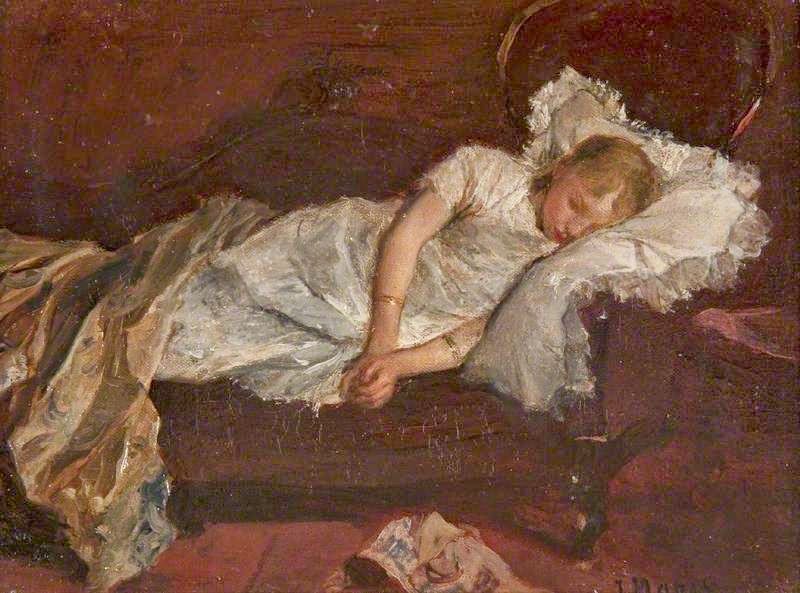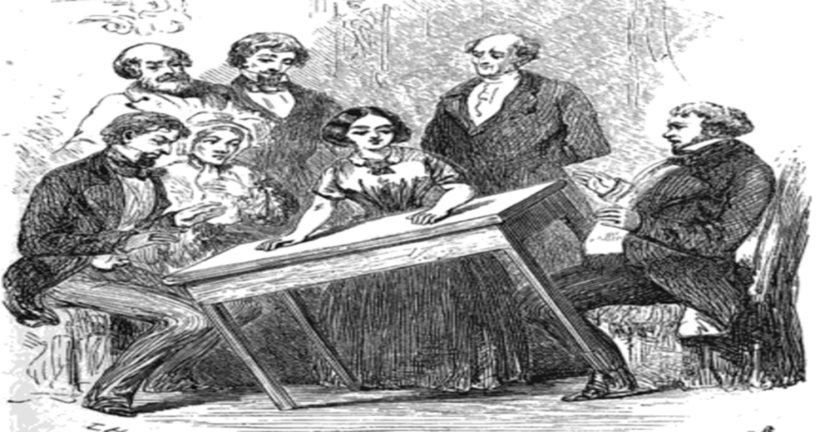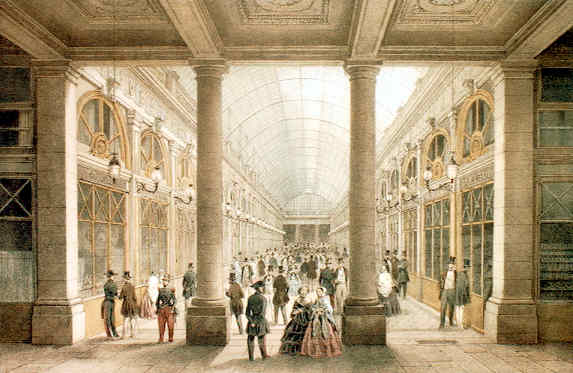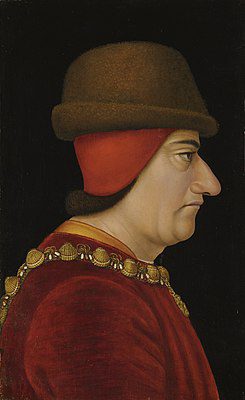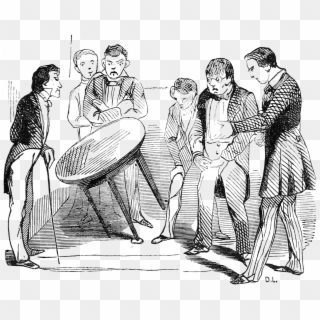Poisoning of the Duke of Guyenne
Spiritist Magazine — Journal of Psychological Studies — 1858 > June > Confessions of Louis XI – Extracted from the life of Louis XI.
Poisoning of the Duke of Guyenne
…I got busy after Guyenne. Odet d'Aidies, lord of Lescun, who had quarreled with me, was conducting the preparations for the war with marvelous vivacity. It was with great effort that I fed the bellicose ardor of my brother, the Duke of Guyenne. He had to fight a fearsome adversary in my brother's mind: Madame Thouars, lover of Charles, Duke of Guyenne.
This woman only sought to take advantage of the power she exercised over the young duke, in order to divert him from the war, for she was not unaware that the war was aimed at the marriage of her lover. His secret enemies had affected, in his presence, to praise the beauty and brilliant qualities of the bride. This was enough to persuade her that her doom would be certain if that princess were to marry the Duke of Guyenne. Certain of my brother's passion, she resorted to tears, prayers, and all the extravagances of a woman lost in such a situation. The fainthearted Carlos relented and communicated his new resolutions to Lescun. Lescun immediately warned the Duke of Brittany and the interested parties, who, in alarm, sent representations to my brother. These, however, had only the effect of plunging him back into his doubts.
However, the favorite managed, not without difficulty, to dissuade him again from war and marriage. From then on, the death of the favorite was decided by all the princes.
Fearing that my brother would attribute it to Lescun, whose dislike of Madame Thouars was known to him, they decided to win over Jean Faure Duversois, a Benedictine monk, my brother's confessor and abbot of Saint-Jean d'Angély. This man was one of the greatest supporters of the Lady of Thouars, and no one was ignorant of the hatred he felt for Lescun, whose political influence he envied. My brother was not likely to blame his mistress's death on him, for that priest was one of his most trusted favourites. Since only the thirst for greatness connected him to the favourite, he was easily corrupted.
For a long time I tried to seduce the abbot, but he always rejected my offers. However, it left me with the hope of achieving my goal.
He easily understood the situation he would get himself into by rendering the princes the service they asked of him, for he knew that it was not difficult for them to get rid of an accomplice. On the other hand, I knew my brother's fickleness and feared becoming his victim.
To reconcile his safety with his interests, he resolved to sacrifice his young lord. Taking such a side, he had as much chance of success as he had of failure. For the princes, the death of the young Duke of Guyenne must have been the result of a mistake or an unforeseen incident. Even when imputed to the Duke of Brittany and his cronies, the death of the favorite would have gone unnoticed, so to speak, since no one would have discovered the reasons that gave it real importance, from a political point of view.
Granting that they could be blamed for the death of my brother, they would have been exposed to the greatest dangers, for it would have been my duty to punish them severely. They knew that it was not good will that I lacked and that in that case the people might turn against them. Then the Duke of Burgundy himself, oblivious to what was going on in Guyenne, would have been forced to ally himself with me, on pain of being accused of complicity. Even in the latter case, everything would have worked out in my favor. I could have Charles the Bold declared a criminal of lèse majesty and have Parliament condemn him to death for the murder of my brother. Such condemnations, pronounced by that high court, always had great results, especially when they were of indisputable legitimacy.
It is easy to see what interest the princes had in handling the abbot. On the other hand, nothing is easier than getting rid of him in secret.
But with me, the abbot of Saint-Jean had a greater chance of impunity. The service he rendered was of the greatest importance to me, especially at that moment, because the formidable league that was being formed and of which the Duke of Guyenne was the center must infallibly lose me. The only way to destroy it would be the death of my brother, which represented my salvation. He aspired to the favour of Tristan the Hermit, thinking that by this means he would rise above him, or at least share my good graces and my trust in him. Moreover, the princes had been imprudent enough to leave in his hands undisputed proof of his guilt: they were several writings, and as they were written in very vague terms, it was not difficult to substitute the person of my brother for that of his favourite, designated there between the lines. By handing me these documents, he removed from me any doubt as to my innocence; for that reason, he avoided the only danger he ran on the side of the princes, and, proving that I was in no way involved in the poisoning, he ceased to be my accomplice and exempted myself from any interest in having him killed.
It remained to prove that he himself was not involved. This was a minor difficulty. To begin with, he was assured of my protection; afterwards, the princes had no proof of their guilt, and he could return the charges to them, by way of slander.

The Abbot agrees to practice poisoning
All in all, he sent me an emissary who pretended to have come spontaneously to tell me that the Abbe de Saint-Jean was unhappy with my brother. I immediately saw the full advantage I could make of such an arrangement and fell into the trap set by the astute abbot. Not suspecting that this man had been sent by him, I dispatched one of my trusted spies. Saint-Jean played his part so well that the emissary was deceived. Based on his report, I wrote to the abbot in order to win him over. He appeared to be very scrupulous, but I triumphed, albeit with some difficulty. He agreed to take charge of the poisoning of my young brother. I was so perverted that I didn't hesitate to commit this horrible crime.
Henri de la Roche, squire of the Duke's repostaria, was charged with preparing a peach that would be offered by the abbot himself to Mme. de Thouars while having lunch at my brother's table. The beauty of this fruit was remarkable. She caught the prince's attention and shared it with him. As soon as they had both eaten, the favourite felt violent pains in her bowels and soon expired in the midst of atrocious suffering. My brother experienced the same symptoms but with much less violence.
Perhaps it seems strange that the abbot should have used such a means to poison his young lord. In fact, the slightest incident could jeopardize your plan. It was, however, the only thing that prudence could authorize: it admitted the possibility of a mistake. Touched by the peach's beauty, it was only natural for Mrs. de Thouars to attract the attention of her lover and offer him half; he couldn't help but accept her and eat a little, even out of consideration. Assuming that he ate only a little bit, this would be enough to provoke the first necessary symptoms; a later poisoning could determine death, as a consequence of the first one.
The princes were seized with terror as soon as they learned of the dire consequences of the favourite's poisoning. They had not the slightest suspicion of the abbot's premeditation. They thought only of giving every appearance of naturalness to the young lady's death and her lover's illness. None of them took the initiative to offer a counter-poison to the unfortunate prince, for fear of compromising himself. Indeed, such an attitude would imply that the poison was known and, consequently, that someone was an accomplice to the crime.
Thanks to his youth and the strength of his temper, Carlos resisted the poison for some time. His physical sufferings did nothing but bring him back to his old projects with more ardor. Fearing that illness would lessen the zeal of his officers, he wanted them to renew their oath of allegiance. As he required them to engage in his service, against all odds, even against me, some of them, fearful of their death, which seemed at hand, refused to do so, and passed over to my court.
Conclusion
In the previous issue, we saw the interesting details given by Louis XI regarding his death. The fact that we have just reported is no less remarkable from the double point of view of history and the phenomenon of manifestations. In fact, we only had difficulties with the choice: the life of this king, as dictated by himself, is indisputably the most complete we have and, we can say, the most impartial. Louis XI's state of mind allows him today to appreciate things at their fair value. From the three chosen fragments, one can see how he makes his own judgment. He explains his politics better than any of his historians. He does not absolve himself of his conduct, and in his death, so sad and so vulgar for a monarch a few hours before all-powerful, he sees an anticipated punishment.
As a phenomenon of manifestations, this work offers a special interest. He proves that spiritist communications can enlighten us about history, as long as we know how to place ourselves in favorable conditions. We hope that the publication of the life of Louis XI, as well as that of Charles VIII, which has also been completed, will soon be placed alongside that of Joan of Arc.
Our Facebook group: Study Group The Legacy of Allan Kardec.
Previous article:Teles de Menezes – Prehistory of Spiritism in Brazil


